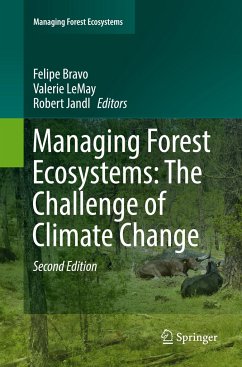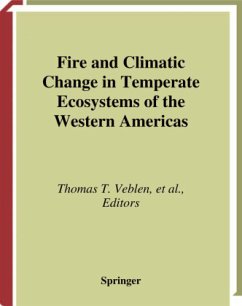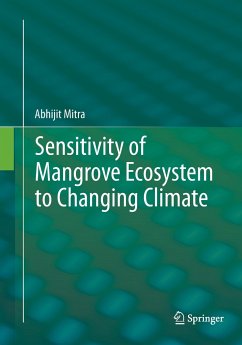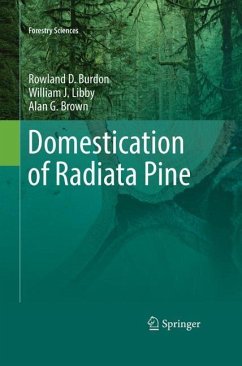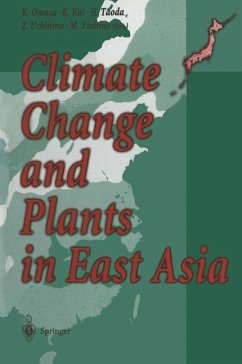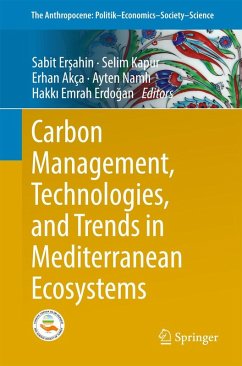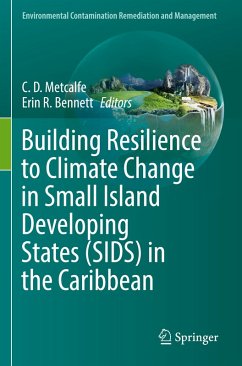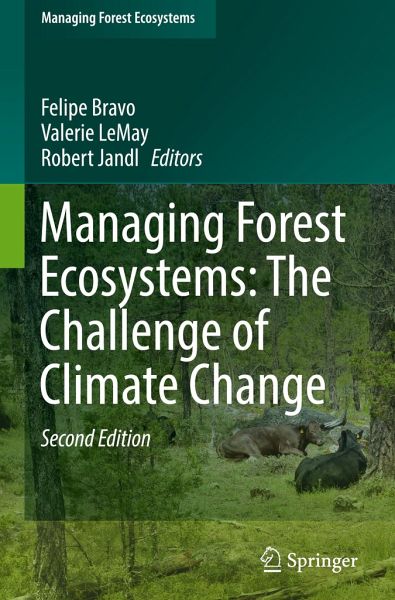
Managing Forest Ecosystems: The Challenge of Climate Change

PAYBACK Punkte
83 °P sammeln!
Climate change shaped the political agenda during the last decade with three issues as hot topics: commonly making the headlines: carbon budgets, impact and mitigation of climate change.Given the significant role that forests play in the climate system - as sources, sinks, and through carbon trading - this book update the current scientific evidences on the relationships between climate, forest resources and forest management practices around the world.By including the forest scientists' expertise from around the world, the book presents and updates a depth analysis of the current knowledge, a...
Climate change shaped the political agenda during the last decade with three issues as hot topics: commonly making the headlines: carbon budgets, impact and mitigation of climate change.
Given the significant role that forests play in the climate system - as sources, sinks, and through carbon trading - this book update the current scientific evidences on the relationships between climate, forest resources and forest management practices around the world.
By including the forest scientists' expertise from around the world, the book presents and updates a depth analysis of the current knowledge, and a series of case studies focused on the biological and the economic impacts of climate change in forest ecosystems in Africa, Asia, Europe and North and South America.
The book will form a valuable resource for researchers and advanced students dealing with sustainable forestry, climate change issues and the effects of climate change on natural resource management.
Given the significant role that forests play in the climate system - as sources, sinks, and through carbon trading - this book update the current scientific evidences on the relationships between climate, forest resources and forest management practices around the world.
By including the forest scientists' expertise from around the world, the book presents and updates a depth analysis of the current knowledge, and a series of case studies focused on the biological and the economic impacts of climate change in forest ecosystems in Africa, Asia, Europe and North and South America.
The book will form a valuable resource for researchers and advanced students dealing with sustainable forestry, climate change issues and the effects of climate change on natural resource management.



